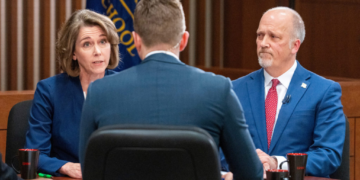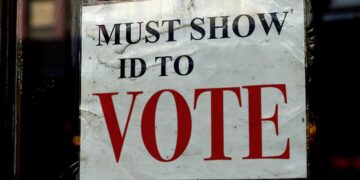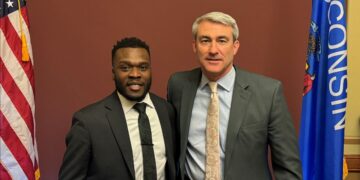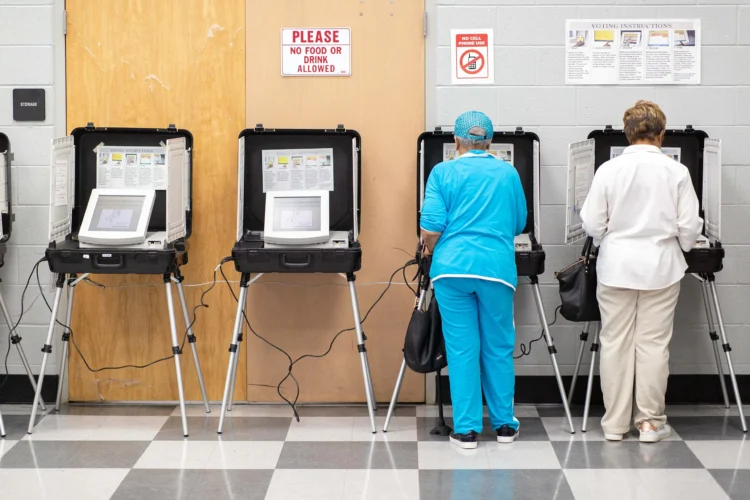A small Wisconsin community’s decision to eliminate electronic voting machines has sparked a federal investigation. The Town of Thornapple in Rusk County, with a population of 711, made the decision to rely solely on hand counting paper ballots last year, which caught the attention of state and federal officials after the April presidential primary election.
The decision to remove the electronic voting machines was made in June 2023, according to town supervisor Tom Zelm, as first reported by the Milwaukee Journal Sentinel.
In an April telephone conversation, town supervisor Jack Zupan mentioned concerns over the integrity of electronic voting systems, stating, “We believe that there was a stolen election and the computers have to go because they’re full of error.”
While it is not illegal for municipalities to remove electronic ballot counters, federal laws require at least one machine to be available for voters with disabilities. The absence of such machines in Thornapple has led to complaints and the involvement of the U.S. Department of Justice, which has requested information from the town within 14 days.
Photo: Thornapple river. Photo Credit: Rusk County Wisconsin
Disability Rights Wisconsin, a nonprofit group representing voters with disabilities, has expressed concern over the lack of accessible voting options in Thornapple. Kit Kerschensteiner, the organization’s executive director, emphasized the importance of a private, independent ballot for all voters, regardless of the type of voting machine used.
Despite the controversy, no one in the municipality has been turned away from voting due to a disability. Zelm, a Thornapple town supervisor, has stated that election officials are available to assist anyone with disabilities to ensure they can cast their ballots, suggesting that the absence of electronic voting machines does not inherently prevent accessible voting.
As the federal investigation unfolds, the situation in Thornapple serves as a microcosm of the ongoing debate over how to conduct elections and what is considered overstepping, especially in rural communities across America.



























